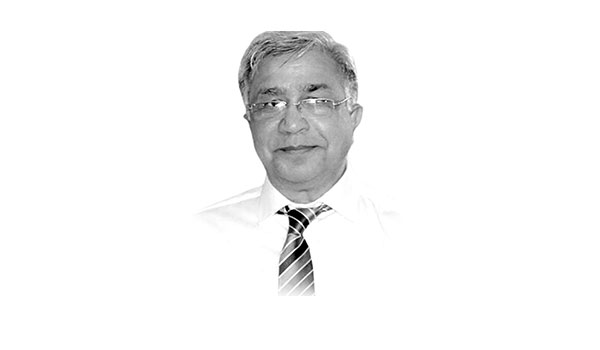Decolonising higher education
WESTERN and American universities claim that if any person graduates from their universities, generally, he would be morally a good person prone to law-abiding and upholding of truth.
The same has been the expectations from the graduates of the Pakistani universities because, after all, the universities have a universal agenda of producing graduates skilled in the knowledge they achieve and possessing a moral plan propagated by their socio-political ideology.
But the Pakistani higher education system has failed to make any such degree holders. However, monitoring agencies like the HEC and the BISEs injected many reforms and introduced vigorous monitoring protocols.
The system has not yielded requisite dividends because all these reformist educational agenda failed to recognize the ground realities, i.e. the classroom, the teacher and the taught.
The education policy to bring higher education to the much-needed functioning must follow the following three aspects of reforms, i.e., Syllabi, faculty, and the taught.
Firstly, the content, outcomes and the implementation of the syllabi. The content of the syllabi must be by the level of degree, socio-political needs of the society, and the requisitions of objectives based on the acquisition of skills, knowledge and information along with the practicality, reliability and validity of the degree.
The syllabi need constant revisits to match the ever-new development of knowledge and information worldwide.
And while doing so, we must ensure that all these revisions must be under the umbrella of the moral aspect of our socio-cultural needs.
Syllabi designed for arts or science must include compulsory teaching of civic sense; for example, if the civic logic about the traffic system is implemented, propagated and practiced for all university graduates, it can bring a healthy and positive change in the mindset of Pakistani people.
Secondly, the faculty to teach our 21st students must be highly qualified and highly professional at all higher education levels.
But their appointments must be based on a strictly meritorious basis. A university teacher must undergo a rigorous examination to ensure a higher standard of morality, responsibility, professional dedication and teaching and research skills.
Besides, he must be a significant component of national debates and policy formation at the national level.
After every five years, his academic performance at the university and services at the socio-political level must be evaluated by some foreign consortium of faculty in the field.
Only then may he be promoted to the following upward ranks. The promotion may also be linked to the success of his student’s performance.
The current selection, promotion and evaluation protocols have not been able to ensure the production of honest, dedicated and skilled degree holders.
Thirdly, the taught or the learners in the classrooms must be the focus of all energies of any educational regime.
The student must be provided with all classroom innovations and tools to ensure that what they learn can also be practised.
The classrooms must present an attractive learning environment to the students at digital and physical levels.
The government must invest more in modernizing the sitting positions and lecture delivery mechanism.
It should also ensure an uninterrupted power supply by converting educational institutes to solar energy systems.
Currently, the classrooms where fans are noisy, creaking, lights are insufficient or unavailable, the digital equipment is missing, and power fails repeatedly, a quality learning environment cannot be ensured.
The students must be given the right to question and debate the given topic as per the need of Pakistani society and its ground realities.
Instead of just lectures, the student-centred approaches must be popularized to ensure that our students do not just become the information and data banks.
They must be taught through a liberal teaching process. Their responses must be recorded, evaluated, and judged according to a fixed set of indicators to ensure they are prepared as skilled, well-practiced, and rational beings.
The student must know the industrial and market trends and new developments in their field of study.
They may be familiarized with the innovations, theories, and practices in the latest happenings and products in the scientific and social areas.
To strengthen their skills even further, the latest research should be made available in the classroom and debated and discussed with the help of their professors.
This may be complemented with the lectures of the relevant national and foreign faculty when and where possible.
A modern concept of educating the youth is to provide internships in national institutions, for which a conducive environment and funding may be provided to the students.
This will help them learn practical knowledge and familiarize them with the fundamental realities, issues and problems, and their benefits.
This is high time that the Pakistani high-ups may think and incorporate such things into their policies.
When no positive and good change has come up by investing in the monitoring of institutions, why not invest in the teacher, the classroom, and the students.
This approach to conducting higher education may be debated, criticized, and evaluated thoroughly and then implemented to achieve positive and higher goals of higher education in Pakistan.
—The writer is a Professor of English at Emerson University, Multan, and has a vast international exposure.










